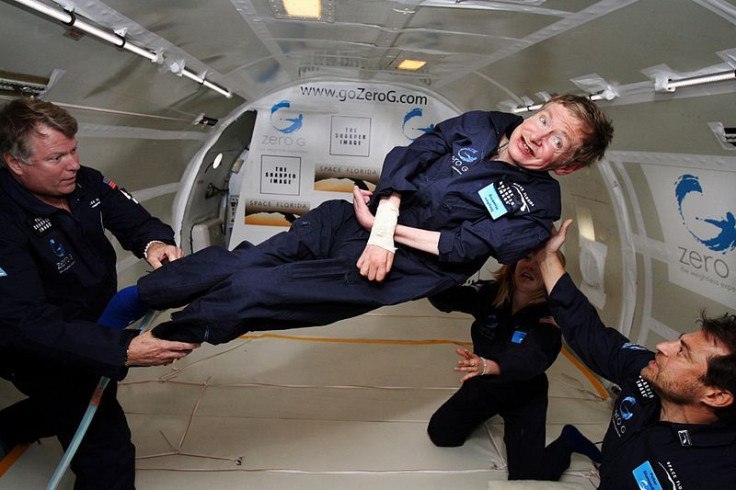Stephen Hawking Says Doctors Offered To End Life Support In 1985

A new film about renowned physicist Stephen Hawking describes how doctors offered to stop life support — in 1985.
Hawking became so ill after contracting pneumonia he feared that he would not be able to finish writing A Brief History of Time, which later sold 10 million copies around the world to become an instant classic.
However, Hawking's first wife, Jane, refused the kind offer by doctors in Switzerland and demanded that her husband be returned to Cambridge. Although subsequent medical care in the United Kingdom saved Hawking's life, the progression of amyotrophic lateral sclerosis, known coloquially as Lou Gehrig's disease and in the UK as motor neuron disease, rendered him speechless.
"The doctors thought I was so far gone that they offered Jane [the option] to turn off the machine," Hawking, 71, says in the film. "The weeks of intensive care that followed were the darkest of my life."
Hawking describes to documentarians the progression of the disease, which kills brain cells controlling essential involuntary muscles as the victim loses speech and ambulatory functions. He was initially diagnoses with the disease in 1963 and given two years to live, but continued to work and became an accomplished researcher and professor of mathematics at the University of Cambridge.
"Slowly the drugs worked, though a small incision in my throat robbed me of my ability to talk," Hawking says. "I was then put on a ventilator and hopes of finishing my book seemed over."
The film also describes the heart-rending breakdown in Hawking's marriage to Jane, with whom he later rekindled a friendship, as well as his later marriage to Elaine Mason, a nurse who presided over his care.
Given his near demise nearly three decades ago, Hawking still harbors big plans for life. A reputed regular at strip clubs during visits to California and elsewhere, the septuagenarian hopes to visit space in a future civilian flight aboard the Virgin Galactic, the private space tourism business launched by Richard Branson.
The documentary drops this year to coincide with publication of Hawkings new book, co-written with science writer Leonard Mlodinow. The Grand Design draws on 4 years of Hawking's research as well as a series of recent astronomical observations and theoretical breakthroughs.
Published by Medicaldaily.com



























